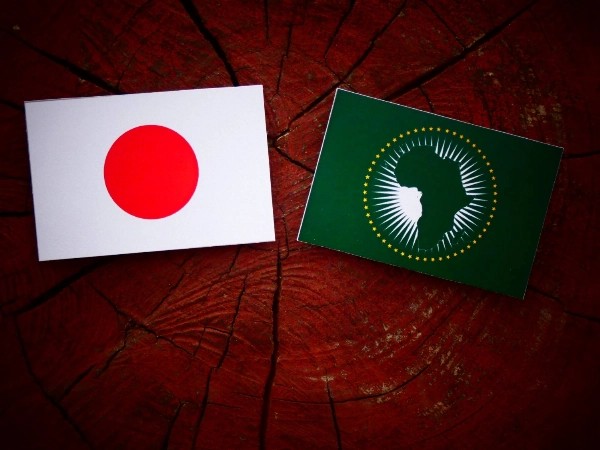From critical minerals to green energy, Japan has been steadily deepening its engagement with Africa over the past few decades. At the most recent Tokyo International Conference on African Development (TICAD 9), Japan pledged $5 billion in investments, building on earlier commitments such as the $30 billion announced at TICAD 8 to be deployed by 2025.
By 2023, $1.53 billion had already been disbursed, underscoring Tokyo’s determination to expand its footprint on the continent. Yet, Africa still accounts for only 0.5% of Japan’s total FDI, leaving significant room for growth. Signs of closer financial ties are already emerging: Côte d’Ivoire recently issued a 50-billion-yen Samurai bond—the first by a sub-Saharan African country—marking a new chapter in Africa’s access to Japanese capital markets.
Against this backdrop, Japanese venture capital firms are beginning to place bold bets on African startups, positioning Japan as an emerging player in the continent’s VC ecosystem. While African founders traditionally look westward—to Silicon Valley, London, or Dubai—for funding, a quieter, less obvious source of capital from Tokyo is starting to shape the future of African innovation.
From Toyota-backed corporate arms to nimble funds run by ex-bankers and entrepreneurs, Japanese investors are carving out a distinctive niche in Africa’s venture ecosystem. Their focus is not just on chasing unicorns but on building infrastructure, enabling mobility, and forging cross-continental bridges between African dynamism and Japanese industrial muscle.
The Toyota effect: Mobility as a catalyst
The most visible player is Mobility 54, the venture arm of Toyota Tsusho and CFAO. Since launching in 2019, it has positioned itself as more than a financial backer.
The firm has backed logistics innovators like Sendy in Kenya, OnePort in Nigeria, and Kamtar in West Africa, all of which tackle the inefficiencies of freight movement. With Toyota’s balance sheet and technical expertise, Mobility 54 isn’t just supplying capital; it’s embedding startups into a wider ecosystem of automotive, energy, and infrastructure businesses.
This is Japan’s industrial strategy at play. While American VCs often hunt for fast-scaling consumer apps, Toyota sees mobility as the foundation of African growth, and a sector where it can leverage its own global strengths.
Betting on early-stage energy: Uncovered Fund and Monex Ventures
Earlier this year, Tokyo-based Uncovered Fund and Monex Ventures joined forces to launch a $20 million Africa and MENA-focused fund. Their belief is that the continent’s next great growth stories will come from fintech, logistics, and climate tech.
The fund writes relatively small tickets—$100,000 to $2 million—but the philosophy goes beyond capital. The pitch to founders is access: to Japanese corporates seeking partners, to technologies honed in Asia, and to a network that can open doors far beyond the continent.
As the fund’s managers argue, the real opportunity is in becoming a bridge builder—translating African startup dynamism into models that resonate with Japan’s corporate world, while giving African founders a foothold in Asia’s sophisticated supply chains.
Kepple Africa Ventures: The gatekeepers
Perhaps no Japanese name is as familiar to African founders as Kepple Africa Ventures. Since 2018, Kepple has made over 100 investments, ranging from Moove, which finances vehicles for ride-hailing drivers, to Koko Networks, which delivers clean fuel to households.
Kepple’s edge is its ability to act as a gateway to Japanese capital markets. The firm frequently arranges introductions to large corporates in Tokyo, organizes demo days, and positions its portfolio as investment-ready for bigger global funds. In many ways, Kepple operates as a cultural interpreter, decoding Africa for Japan, and Japan for Africa.
A different kind of capital
Unlike Silicon Valley, Japanese investors rarely trumpet their deals. They tend to be patient, methodical, and guided by strategic logic rather than headline valuations.
For firms like Double Feather Partners, founded by Kohei Muto, that patience is a deliberate choice. Double Feather seeks to replicate Africa’s mobile money leapfrog, this time with electric vehicles and green transport solutions.
And while Verod Capital is Nigerian-led, its alliances with Japanese VCs demonstrate another trend: hybrid partnerships. Japanese funds often prefer to co-invest with African peers who know the terrain intimately. It’s a model that reduces risk, accelerates learning, and deepens ties between Tokyo and Lagos, Nairobi, or Accra.
Why Japan, why now?
The motivations behind Japan’s African push are layered. Demographically, Japan faces an ageing population and stagnant domestic markets. Africa, by contrast, is young, urbanizing, and growing.
Strategically, Japanese corporates see Africa as both a growth frontier and a testing ground for technologies—from mobility services to clean energy—that could later circle back to Asia.
For Africa, Japanese VCs bring something rare: a long-term outlook. Instead of chasing the next “African unicorn,” they are often more interested in building resilient businesses that plug into supply chains, infrastructure, and sustainability goals.
The quiet power brokers
In the noisy world of venture funding, Japanese investors often fly under the radar. They do not dominate headlines in the way Sequoia or SoftBank do. Yet, their fingerprints are increasingly visible: in how goods move across Nairobi, how payments are processed in Lagos, or how households in Dar es Salaam cook with clean fuel.
Africa’s startup ecosystem is entering a phase where hype must give way to sustainability. In that sense, the Japanese model may be exactly what the continent needs: patient capital paired with industrial know-how.
As one founder in Nairobi put it to me recently, “When the Americans invest, they ask how fast you can grow. When the Japanese invest, they ask how long you can last.”

